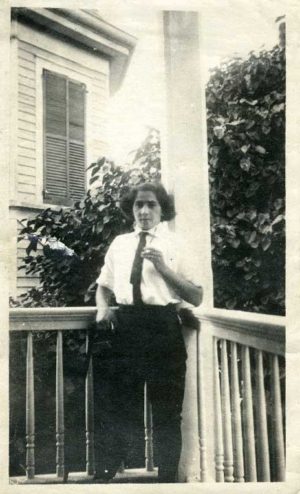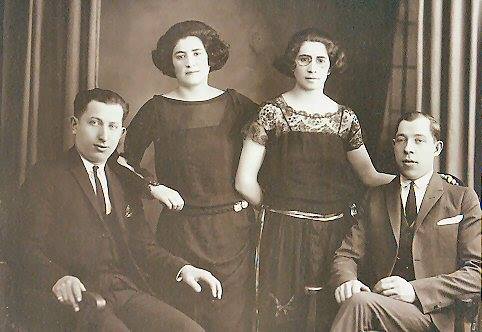Listen to an interview with Aaron about Hotel Cuba on NPR’s All Things Considered.
From the award-winning author of The View from Stalin’s Head, Hotel Cuba is a stunning work of fiction about two sheltered Russian Jewish refugee sisters, one sensible and one impractical, who find themselves trapped in hedonistic Prohibition-era 1920s Havana while trying to emigrate to America.
“Pearl is a character who will keep you reading late into the night. You cannot help but place your hand in hers and go along for this unpredictable journey that moves between continents in the 1920s. Thick with the humid air of a Havana summer night, rich with mesmerizing detail, HOTEL CUBA will grab you and not let you go.”
— Dolen Perkins-Valdez, author of Take My Hand
ORDER NOW:
BOOK CLUB TOOL KIT:
ABOUT THE BOOK
Sturdy, sensible Pearl Kahn and her lovestruck, impulsive younger sister Frieda are fleeing the chaos of World War I and the Soviet Revolution. Intending to join their sister in New York, the pair are blocked from entering Ellis Island due to newly enacted and discriminatory immigration laws. Without many options, Pearl and Frieda make the journey to Havana, Cuba, promising each other that it is only temporary. Their sights are still set on America, which they believe is merely a temporary waystation enroute to the land of their dreams.
As Pearl searches for a way to get them to America—and to dissuade Frieda from marrying the not-so-dreamy man of her dreams—her life opens up unexpectedly, forcing Pearl to confront her past, as well as shed the shame that she carries everywhere, and to build a future on her own terms.
A heartbreaking, epic family story, Hotel Cuba explores the profound everyday courage of two women displaced from their home and who strive to create a new one in strange lands.
Read Aaron’s essay “Solving a Family Mystery Through Fiction” in Literary Hub

Author statement:
This book was inspired by the immigration stories of my grandparents, Ethel (“Pearl”) and Morris (“Ben the Oak”), who were in their 80s and 90s when I knew them.
I began the novel in 2017, after I went with a group of writers to Capitol Hill to advocate for progressive causes. While expressing my support for immigrants to Senator Debbie Stabenow of Michigan, I talked about my grandmother, who fled to the U.S. from persecution in Russia and was diverted to Cuba for a year. The Senator told me. “You have to write your grandmother’s story.”
Read novelist Avner Landes’s interview with Aaron in Times of Israel
Praise for HOTEL CUBA

NPR Book of the Day, May 19, 2023
Named a Best Book of 2023 by Hadassah Magazine
A Jewish Book Council Book Club Pick, January 2024
Winner for American Fiction in the 2024 Bridge Book Awards
“Steeped in rich detail about the challenges of coming to a foreign country and constantly guessing at the intentions of those offering help, this is a nuanced narrative that uncovers the harsh realities of uprooting your life, even if you reach your destination. It’s impossible not to cheer on Pearl, whose keen observations and desire to be her own boss push her through setbacks and trauma in a riveting journey to find her own freedom in an unjust world.”
— Booklist
“Aaron Hamburger’s stunning new novel Hotel Cuba imbues the immigrant story with love, sadness, and compassion, breathing new life into the classic genre.”
— Electric Literature
“In his resonant and rich novel, Hamburger reimagines his family’s experience with the widely restrictive laws and quotas of early 20th-century America that blocked immigrants, including Eastern European Jews fleeing persecution on the Polish-Russian border, and drove them to seek refuge in Cuba. Hamburger places resilient Pearl and her flighty younger sister, Frieda, at the emotional center of his empathic, satisfying saga. Hamburger, who was recently awarded Lambda Literary’s Outstanding Mid-Career Novelist Prize, evokes the colorful, sultry Prohibition-era Havana, as both young women make their way in the world.”
—The National Book Review “5 Hot Books”
“The immigration stories of Hamburger’s Jewish grandparents fleeing persecution in Russia post-First World War inspire this tale set in 1922 in which practical Pearl Kahn and her younger lovestruck sister, Frieda, sail on the S.S. Hudson, hoping to join their sister, Basha, in New York City. The ship is diverted to Havana where the two live and work for a year in a hat shop run by the Steinbergs, a welcoming Jewish couple. Cuba then is a playground for tourists and a sweatshop for the poor, a place where they depend on music, Pearl says, “like a folk medicine.” The Kahn sisters save enough money to continue their plan to immigrate to America where Frieda’s fiancé, Mendel, and his older brother, Ben the Oak — from their Lithuanian hometown — await. Their journey is fraught with obstacles both physical and emotional. Wholly immersive, this tale brings the time and its struggles vividly to life.”
—The Toronto Star
“Inspired by the immigration story of author Hamburger’s grandmother, this historical novel follows a pair of Jewish sisters who flee their shtetl on the Russian-Polish border in the hopes of immigrating to America. Instead, they are diverted to Cuba. The award-winning novelist richly captures the atmosphere of Cuba in pre-Castro times as well as the sisters’ distinctive sensibilities and their emotional journeys. It’s a story of displacement, creativity, and hope.”
—Hadassah Magazine
“Compulsively readable and fresh… Hamburger’s depiction of 1920s Havana is sultry, vibrant, and brilliantly drawn. It’s a delight to watch Pearl blossom like a hibiscus flower there…Pearl is a striking character…This heartful characterization holds readers close, even after we’ve left the lush shores of Havana for the streets of New York (and a thrilling romance)…we would follow Pearl anywhere.”
—Jewish Book Council
“A unique and engrossing story of Jewish immigration inspired by Hamburger’s grandmother’s own immigrant experience…extraordinary.”
—Times of Israel
“Aaron Hamburger’s Hotel Cuba is a masterful use of historical fiction by the acclaimed author to dig into his real-life grandmother’s story. And it reveals an oft-unspoken aspect of Jewish-American immigrant stories: that such journeys are anything but linear.”
—Moment Magazine
“Deeply moving, compulsively readable, HOTEL CUBA chronicles the early twentieth century immigrant experience with a profound understanding and crackling urgency I’ve not previously encountered. I could not put it down and I could not stop thinking about it long after I’d reached its stunning conclusion. In short: You need to read this book. Right now.”
— Joanna Rakoff, author of My Salinger Year
“I cannot overstate my love for HOTEL CUBA. With expert perception and a capacious heart, Aaron Hamburger weaves together the daring tale of Pearl and Frieda, refugees from Poland who journey to Havana to start a new life. Carrying little but their own unstoppable vitality, their discoveries in this strange land will dazzle readers on every page. Thrilling and magisterial, the twists and turns of their story will break your heart and fill it up again with light. With every sharp and generous line of this exquisite novel, Hamburger creates dazzling worlds within worlds that I’ll be thinking about long after turning the final page.”
— Kristopher Jansma, author of The Unchangeable Spots of Leopards
“Aaron Hamburger takes the reader on Pearl’s circuitous journey through Cuba to the U.S., keeping us close to the visceral feelings of hunger, displacement and loneliness as well as the blossoming that Pearl undergoes in Cuba as she begins to assert her creative identity. Set between the two world wars, HOTEL CUBA explicates the past while presaging the future in an excellent historically-based novel.”
— Breena Clarke, author of River, Cross My Heart
“Aaron Hamburger’s deeply compelling new novel HOTEL CUBA takes us to Havana in the 1920s where it weaves a beautiful story of sister-love and leave-taking. The book is syncopated by Hamburger’s signature, perfectly-timed humor, his generous storytelling and agile prose. What a wise and knowing and big-hearted story of belonging and the lasting imprint of place, written by a writer at the height of his craft. There’s a feast for the eyes and ears and tastebuds here, so find a very comfortable chair and settle in. You won’t be able to put it down.”
— Susan Conley, author of Landslide
“With HOTEL CUBA, Aaron Hamburger sees the poignant gravity behind the ongoing search for home and the battle that can ensue between family obligations and the weight of history. With great empathy, this rich, engrossing novel lets us see that no place is ever transitory and that even the briefest of stays forever affects us, no matter our last horizon.”
— Manuel Muñoz, author of The Consequences
“Aaron Hamburger’s HOTEL CUBA is a beautiful, gripping story of immigration, hope, and personal fulfillment. Pearl, its protagonist, is one of my favorite characters in any recent novel; she is complex, wounded, occasionally ferocious–and always engaging, as she follows a long, fraught path from Russia to America via a vividly-rendered Prohibition-era Havana. Pearl seeks what we all do: safety, family, and, ultimately, a place in which she can be her best self. I loved this book.”
— Christopher Coake, author of You Would Have Told Me Not To
“HOTEL CUBA is a stunning and captivating read. It can be easy to show a cast of characters crossing such great distances, can be easy to show an immigrant’s story, but it is another thing entirely to make a reader feel that distance and the love, sadness, forgiveness and triumphs these people experience. There is so much love and compassion in this neatly detailed and moving novel. HOTEL CUBA joins the ranks of some of my favorites like Geraldine Brooks’s Caleb’s Crossing and Anthony Doerr’s All the Light We Cannot See.”
— Morgan Talty, author of Night of the Living Rez
“In this vibrant and engaging novel, we join Pearl—practical, adaptable and constantly underestimated by those around her—as she turns her mind to the task of learning the baffling arithmetic of a new culture, a new language and new freedoms. How do you tally the price of a mango, or the price of a dockworker’s strategic silence? How far can the distance between two sisters stretch without breaking? And how to calculate the most delicate variable of all, the value of Pearl’s potential and future worth as she finds her place in a new, unknown world?”
— Carolyn Parkhurst, author of The Dogs of Babel
“HOTEL CUBA is warm, witty, and mournful, a hopeful and clear-eyed chronicle of roads both taken and not. Aaron Hamburger has a wonderful ear for the tenderness and loneliness of memory, and though his book travels continents, its most potent territory is the impossible idea of home. Pearl is miraculous and unforgettable, and so is her story.”
— Hilary Leichter, author of Temporary
“HOTEL CUBA, the story of two sisters—one a sociable beauty, the other an independent thinker—and their journey toward the American dream, is terrific. From the harrowing opening voyage as sheltered Russian Jewish refugees on their way to 1920s Havana, to the final pages set in an up-and-coming Detroit, Aaron Hamburger vividly reveals all the places and choices the sisters must navigate as they forge their way in a rapidly changing world. This is historical fiction at its best.”
— Jessica Francis Kane, author of Rules for Visiting
“In HOTEL CUBA, Aaron Hamburger brings a humane intelligence to the story of two sisters searching for home following the devastations of the First World War. Every finely observed detail resonates with hope and loss.”
— Rebecca Donner, author of All the Frequent Troubles of Our Days

Selected Press FOR HOTEL CUBA
Read an interview about the book in Electric Literature
Read this interview with Aaron to find out more about the writing of Hotel Cuba
Read this review of Hotel Cuba in Moment Magazine
Read this conversation with Aaron and novelist Lauren Grodstein in Bomb Magazine
Listen to Aaron’s interview on Writer’s Forum at WRBH Reading Radio.
Read this feature about Hotel Cuba via the Historical Novel Society
Read this interview with Aaron in the Detroit Jewish News
Hotel Cuba featured in Hadassah Magazine’s New Jewish Books for June 2023.
Read J Brooke’s interview with Aaron about Hotel Cuba in Streetlight

Chapter One
Fish and oranges. A salty sea of soup dotted with islands of potato chunks that Pearl can mash flat with the back of a spoon. A roll of bread so dry, when she dunks it into her lukewarm soup, the stubborn roll remains firm. But Pearl can be stubborn too. She dunks the roll until it softens and melts into a paste.
It’s depressing, the food on this boat they call S. S. Hudson. Heavy on salt and light on pepper, parsley, or any herb to give it character, like the shaggy dill in her yard back in Russia—or what used to be Russia because this year, 1922, their town belongs to Poland. After a good rain, those dill stalks grow so high, they collapse under their own weight. Starving blue-eyed soldiers from the Tsar’s army used to pull them out by the roots, mistaking them for carrots, then fling them to the ground.
“Eat,” says Pearl, extending an orange to her younger sister Frieda, sitting with her eyes closed and squeezing her temples. “Or save it for later.”
“Don’t bother,” says Frieda. “I won’t eat it then either.”
“You can’t starve all the way to Cuba.” Maybe Pearl sounds more like a nagging mother than a sister, but she quit worrying about her own vanity years ago when Mama died, giving birth to Frieda. Though Pearl was only nine then, people already called her Old Lady, Housewife, Empress of the Kitchen, Madame Singer Sewing Machine.
What will they call her in Havana, where no one knows her and she has no history? She might be anything. It’s a thrilling, terrifying thought.
Before the War, a girl from Turya who’d immigrated to America returned to visit—as a rich lady. Some women laughed behind her back, mimicked her proud walk, lifted their hair to imitate her short haircut, and called her “New Woman,” as an insult. But Pearl didn’t laugh. Maybe someday, she too would become a kind of New Woman, like this shtetl girl who’d transformed into a prosperous American lady who could afford to coolly ignore the others’ jokes, as if she didn’t hear. Now there was freedom.
Frieda, who’s in one of her states, won’t eat, no matter what Pearl says. Arguing with her is like trying to empty the ocean with a spoon, so Pearl focuses on her own soup. Tomorrow she’ll eat the next soup, and then the one after that, and the one after that. In this way, always looking forward, never back, she and this creaking boat will slowly cross the Atlantic, leave Europe behind.
When Pearl finishes her bowl, she’s still hungry. She has long been cursed with a healthy appetite. Her solid, sturdy figure bulges in the wrong places for a woman who loves dainty clothes, loves looking at them and making them. Before the Great War, when people cared what they looked like, Jews and Gentiles alike deluged her with orders for dresses sewn with stitches so fine you needed a magnifying glass to see them. For each dress she made, Pearl imagined a story, the potential to put on a new outfit and become a new person. But sadly, clothes never fit her as beautifully as they do slender Frieda, who even before the boat often forgot to eat.
Forgets to eat? Pearl has never forgotten to eat in her life. During the worst of the Great War and then the Revolution and War with Poland after, her hunger was so raw it addled her thoughts, gnawed at her stomach lining.
On the S. S. Hudson, many passengers are seasick like Frieda. So Pearl squeezes sideways between tables, casually skims stray peas and carrot knobs from abandoned bowls of soup, scrounges a section of orange, a scrap of pinkish brown herring.
A willowy lady wearing a dusty pink hat watches her at work—out of pity or disgust? She’s a sophisticated city type. Jews are so desperate to leave Europe these days, they’d cross the ocean in a bathtub, so Pearl sees many grand people like her mixed with country folk in steerage. This lady has a long lovely face, pale with a pointed chin, and shrewd gray-green eyes like a cat. Pearl noticed her when she came into the dining room on the arm of a young man who pulled out a chair for her. The pink lady stepped forward and sat, didn’t even look behind her, confident the chair would be pushed in again, and it was.
Pearl imagines what it would be like to have that kind of confidence, to sit into air and know that a seat would appear below you. And that hat—it fires up her imagination. If Pearl could afford to wear a fancy pink hat like that, she could walk down the street with such a cold,blank stare that no one would dare bother her. She’s known plenty of women who aren’t strictly beautiful, but in the right hat or dress, they’re magnificent. Their clothes teach the world to treat them with dignity.
The pink lady notices Pearl staring, gives her an inquisitive look, and Pearl, who feels a puzzling itch to capture this exquisite woman’s attention, surprises herself by nervously extending a roll and asking, “Maybe you want half?”
In response, she averts her eyes.
“Go on,” says Pearl, fearing she’s committed a blunder but unable to stop herself. “You can have the whole thing if you want.”
“I’m afraid I’m not very hungry.” The lady looks as if she’s smelled something rotten. She rises and leaves the table, followed by her male companion.
Pearl returns to her seat. “This food’s terrible,” she tells her sister. “If they let me in the kitchen, I could do better.”
“I heard you,” says Frieda. “The way you talk, it’s embarrassing.”
“How’s that?” Pearl suspects her sister’s right but doesn’t like to admit it. She lacks her sister’s talent—if you can call it that—for small talk.
Frieda grabs a roll and shoves it rudely at Pearl’s chest. “’Go on, have it.’ That’s not how a lady speaks. Didn’t you see that expensive dress she had on? Didn’t you hear her pretty accent? Imagine what she thinks of us.”
The back of Pearl’s neck prickles with shame. I’ve gotten it wrong again, she thinks. But what if the pink lady wasn’t offended, just jealous? Because Pearl was brazen enough to do what she felt like. If that lady weren’t so polite, she’d pick up scraps too. Polite people don’t survive in this world.

